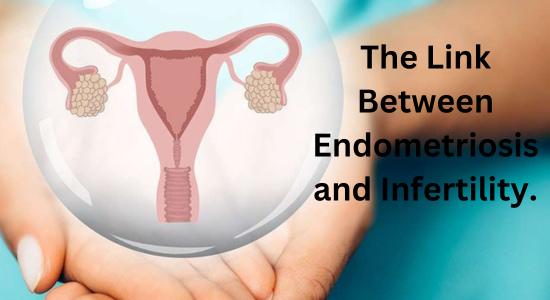Open and honest communication is one of the pillars of a healthy relationship, especially when it comes to sensitive topics like reproductive health. While these discussions may feel uncomfortable or intimidating, they are crucial for mutual understanding, trust, and shared decision-making. In this article, we’ll explore strategies to approach conversations about reproductive health with your partner, emphasizing the importance of empathy, education, and teamwork.
Why Discussing Reproductive Health Matters
Reproductive health encompasses a wide range of topics, including contraception, family planning, sexually transmitted infections (STIs), infertility, menstrual health, and overall sexual wellness. Addressing these topics with your partner is vital for several reasons:
- Promotes Mutual Understanding: Open conversations help align goals and expectations regarding family planning, sexual health, and lifestyle choices.
- Strengthens Emotional Intimacy: Sharing personal health concerns fosters trust and emotional closeness.
- Encourages Preventative Care: Discussing reproductive health can motivate both partners to prioritize regular medical check-ups and screenings.
- Facilitates Decision-Making: Whether planning a family or managing a health condition, joint discussions ensure both partners are on the same page.
Preparing for the Conversation

Preparation can make a significant difference in ensuring a productive discussion about reproductive health. Here are steps to get ready:
- Educate Yourself: Before initiating the conversation, take the time to understand your reproductive health needs and concerns. Reliable resources, such as medical websites, health professionals, and educational materials, can provide accurate information.
- Choose the Right Setting: Timing and location matter. Select a private, comfortable setting where both of you can talk without distractions.
- Be Clear About Your Goals: Understand what you want to achieve from the discussion. Are you seeking support, sharing information, or making a decision together?
- Practice Active Listening: Prepare to listen to your partner’s thoughts and feelings without judgment or interruption.
Starting the Conversation

Beginning a conversation about reproductive health can be daunting, but a thoughtful approach can ease tension. Here’s how to start:
- Use “I” Statements: Express your thoughts and feelings using statements like, “I’ve been thinking about our plans for the future, and I’d like to discuss how we approach family planning together.”
- Be Honest and Vulnerable: Acknowledge that the topic may be sensitive but emphasize its importance. For instance, you could say, “I know this isn’t an easy topic, but it’s important to me that we talk about our health and plans openly.”
- Express Care and Respect: Reassure your partner that the conversation comes from a place of love and respect. This creates a safe environment for open dialogue.
- Ask Open-Ended Questions: Encourage your partner to share their thoughts by asking questions like, “How do you feel about our current approach to contraception?” or “What are your thoughts on getting tested together for STIs?”
Key Topics to Cover
When discussing reproductive health, consider addressing these essential topics:
- Contraception:
- Explore options for birth control and decide what works best for both of you.
- Discuss potential side effects, effectiveness, and personal preferences.
- STI Prevention and Testing:
- Talk about the importance of regular testing and safe sex practices.
- Share your STI history honestly and encourage your partner to do the same.
- Family Planning:
- Discuss whether you want children, the timing, and any concerns about fertility.
- If applicable, talk about alternatives like adoption or assisted reproductive technologies.
- Menstrual Health:
- Share how menstrual cycles may impact intimacy, mood, or overall health.
- Discuss how your partner can offer support during this time.
- Sexual Wellness:
- Address any concerns about sexual performance, pain, or satisfaction.
- Consider seeking professional advice if necessary.
- Infertility:
- If you’re facing challenges conceiving, discuss potential causes and treatment options.
- Support each other emotionally through this journey.
- Health Screenings:
- Encourage regular visits to healthcare providers for Pap smears, prostate exams, and other relevant screenings.
Navigating Challenges
It’s common to encounter obstacles during these conversations. Here are strategies to overcome them:
- Manage Discomfort: Acknowledge any awkwardness and remind yourselves why the conversation matters.
- Address Misinformation: Gently correct any myths or inaccuracies using reliable information. For instance, if your partner has misconceptions about contraception, share educational resources or consult a healthcare provider together.
- Handle Emotional Reactions: If the topic triggers strong emotions, stay calm and empathetic. Validate your partner’s feelings and offer reassurance.
- Seek Professional Guidance: If disagreements arise, consider consulting a counselor or medical professional to mediate and provide expert advice.
Building a Supportive Dynamic
Creating an environment where reproductive health discussions are routine and supportive strengthens your relationship. Here’s how to build this dynamic:
- Normalize the Conversation: Make reproductive health a regular topic rather than a one-time discussion. This reduces stigma and promotes ongoing communication.
- Respect Boundaries: Recognize that your partner may need time to process certain topics. Be patient and revisit discussions as needed.
- Share Responsibilities: Approach reproductive health as a team effort. Whether scheduling doctor’s appointments or researching contraception, divide tasks equally.
- Celebrate Milestones: Acknowledge and celebrate positive steps, such as completing a health screening or making a decision about family planning.
The Role of Technology and Resources
Modern tools and resources can facilitate conversations about reproductive health. Consider these options:
- Health Apps: Apps like Clue, Flo, or Natural Cycles can help track menstrual cycles, ovulation, and fertility, making it easier to share information.
- Educational Websites: Direct your partner to trusted sources like Planned Parenthood, the World Health Organization (WHO), or the Centers for Disease Control and Prevention (CDC).
- Telehealth Services: Virtual consultations with healthcare providers can address questions or concerns in a convenient, private setting.
- Support Groups: Online or in-person support groups can provide a sense of community and shared experiences.
The Long-Term Benefits
Open communication about reproductive health fosters a relationship built on trust, respect, and mutual care. By addressing these topics together, you:
- Strengthen your emotional connection.
- Make informed decisions that align with your shared values.
- Reduce stress and uncertainty surrounding health and family planning.
- Build a partnership that prioritizes both individuals’ well-being.
Also read about: The Connection Between Sleep and Skin Health.
Conclusion
Talking to your partner about reproductive health may require courage and sensitivity, but it’s a conversation that can profoundly impact your relationship and individual wellness. By approaching the topic with empathy, clarity, and mutual respect, you can navigate these discussions effectively and create a supportive foundation for the future. Remember, reproductive health is not just a personal matter—it’s a shared journey that deserves attention and care from both partners.
RESOURCES
[link to related article “Discussing reproductive options after diagnosis”]


Pingback: How to Advocate for Your Health During Doctor’s Visits: